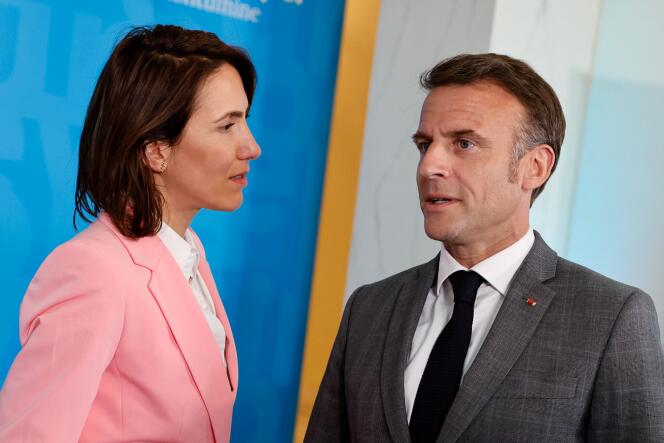


In 2017, Emmanuel Macron's speech at the Sorbonne university brought him to the forefront of the European stage. Seven years later, with politically risky European elections just weeks away, the French president would like to repeat his performance. So, on Thursday, April 25, he is due to return to the Paris university's great auditorium to set out his vision for Europe.
By returning to there, Macron is "choosing conservatism," lamented a source close to him, who had been campaigning for a location that would embody the Elysée's fight for European industries. "The president is feeling attacked on his core issues, the economy and Europe," explained this close friend, at a time when France's public finances have gone into disarray and when, after the June 9 elections, his Renaissance party could end up far behind the Rassemblement National (RN, far-right) and be trailed, if not overtaken, by the Parti Socialiste.
"It's foolish to go to the same place as 2017; it can only be worse," said another source at the Elysée. Especially as the situation has changed: Today, Macron no longer has a majority in the Assemblée Nationale, as he did in 2017, when he had just been comfortably elected. "The Sorbonne is the place for results," replied an advisor to the president, speaking for the Elysée, before pointing out that "the intuition of a sovereign Europe," put forward by Macron in 2017, has proven "very relevant," and that a "large part of the proposals made" on that occasion "have come into force." In other words, this advisor continued, "what the president says at the Sorbonne is likely to become reality."
In Brussels, the widely-shared view is that Paris had a hand in shaping the EU's agenda over the last five years, which has been punctuated by unprecedented crises such as Covid-19 and the war in Ukraine. Even some of the French President's opponents have admitted this. "I give Emmanuel Macron credit for scoring points on the agenda he set himself," conceded François-Xavier Bellamy, head of the Les Républicains (LR, right) party's list for the European elections.
From the post-Covid European recovery plan to the joint purchasing of vaccines or gas; from the adoption of digital regulation to measures to defend trade; from the rehabilitation of nuclear power to the drafting of an industrial policy, the 27 EU member states have, since 2019, undertaken unprecedented initiatives that have largely echoed the "sovereign Europe" that Macron had championed in 2017.
"Macron's Europe keeps all the anti-social promises he made in 2017, and none of the progressive announcements he had made," attacked Manon Aubry, for her part. "Moreover," continued the head of the La France Insoumise (LFI, radical left) list, pointing to the limits of the European sovereignty the president had sought: "The last two French photovoltaic panel factories are closing."
You have 65.99% of this article left to read. The rest is for subscribers only.
